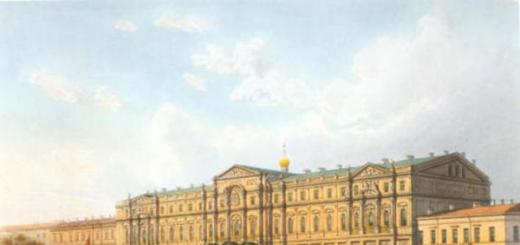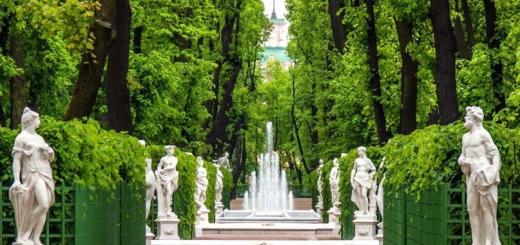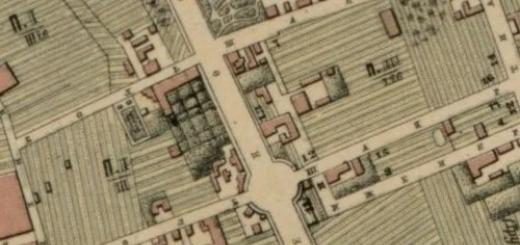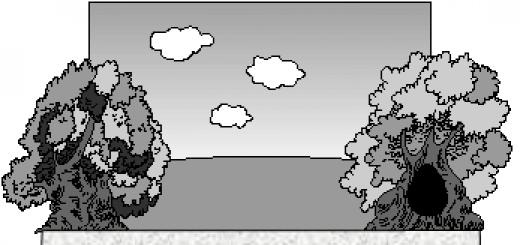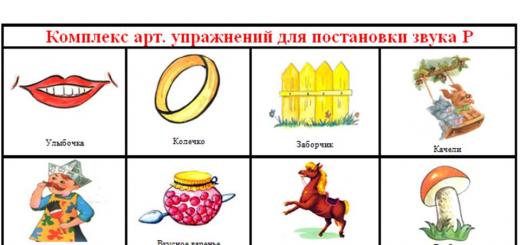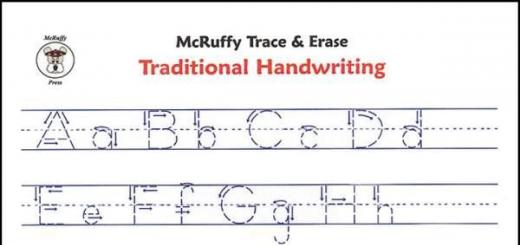I can't imagine that, for example, in German-occupied Voronezh, Soviet women queued up for this...
The caption under the photo reads:
"The line in front of the store on Italian Boulevard. Today, a sale of one hundred pairs of artificial silk stockings"
In the context of this wonderful photo, I want to give you fragments from the book "Paris through the eyes of a German" by Oscar Reile. It is very interesting...

Germans and the Eiffel Tower. Calmly and busily Paris was occupied
1. Summer 1940.
"... In the following weeks, the streets of Paris began to gradually come to life again. The evacuated families began to return, to take up their former work, life again pulsed almost as before. All this is not least thanks to the measures taken by the commander of the troops in France and his administration. Among other things they were so successfully assigned the exchange rate of the French currency 20 francs = 1 mark. payment for labor or goods sold.

Nazi flag over a street in Paris, 1940
As a result, in the summer of 1940, a peculiar way of life began to improve in Paris. Everywhere German soldiers were seen strolling along the boulevards in the company of charming women, looking at the sights or sitting with their companions at tables in a bistro or cafe and enjoying food and drinks. In the evenings, such large entertainment establishments as the Lido, the Folies Bergère, the Scheherazade and others, were overflowing. And outside of Paris, in the suburbs famous in history - Versailles, Fontainebleau - at almost any hour there were small groups of German soldiers who had survived the battles and wanted to enjoy life to the fullest.

Hitler in Paris
... The German soldiers very quickly got used to France and, thanks to their correct and disciplined behavior, won the sympathy of the French population.It got to the point that the French openly rejoiced, when the German Luftwaffe shot down British planes that appeared over Paris.
These correct, largely friendly relations between the German soldiers and the French were not overshadowed by anything for almost a year.
Most Germans and French in July 1940 hoped for a speedy peace, so Hitler's readiness in his public speech on July 19, 1940 for peace negotiations with Great Britain and Lord Halifax's sharply negative answer a few days later, almost no one seemed to pay attention or took it tragically . But the illusion was deceiving. In the occupied French territories, there were, perhaps, quite a few French who took with great interest the call of General de Gaulle to continue the struggle against Germany and understood what the statements could mean. english lord in future. For this period of time, the circle of such Frenchmen, according to the Abwehr, was still very narrow. In addition, most of its members prudently behaved quietly and expectantly.

Hitler with close associates posing against the background eiffel tower in Paris in 1940. Left: Albert Speer
2. End of October 1941.
"... industry and the economy continued to work rhythmically, at the Renault enterprises in Boulogne-Billancourt, trucks for the Wehrmacht uninterruptedly rolled off the assembly line. And at many other enterprises, the French, without any coercion, produced in large volumes and without complaints products for our military industry.
However, at that time the situation in France was essentially determined by the fact that the French government in Vichy made serious efforts to defeat not only the communists, but also the supporters of General de Gaulle. Their instructions to all their subordinates executive authorities were about the same.
In the cities of the occupied French territories, it was easily established that the organs of the French police cooperate closely and without friction with the organs of our military administration and the secret military police.
Everything gave the right to believe with certainty that a significantly larger part of the French, as before, stood for Marshal Pétain and his government.

Column of French prisoners at Varsailles Palace in Paris
And in Paris, life went on as before. As the guard company marched through the Champs Elysees to the Arc de Triomphe to music and drumming, as before, hundreds and even thousands of Parisians gathered along the sides of the streets to admire the spectacle. Rarely could one read anger and hatred on the faces of the audience. Rather, the majority looked after the German soldiers with obvious understanding, often even approval. It is the French, thanks to their great andglorious military past and traditions, show more understanding for such performances, demonstrating strength and discipline. And is it really impossible to look at how, in the afternoon and in the evening, the German military strolled along the boulevards, in taverns, near cafes and bistros, amiably talking with the French and French women?

Parade of German troops in Paris
... not all of these French were ready to act against us as spies and saboteurs. Millions of them, at least at that moment, did not want to have anything to do with the activities of those compatriots who had already united in groups directed against us. Many of the best representatives of the French did not even think about fighting against Germany. Some believed that they should support the head of their state, Pétain, while others determined their position due to strong hostility to Great Britain. An example of this is Admiral Darlan.

3. Summer 1942.
"... Laval, in his radio address, went so far as to say, among other things:
"I wish the victory of Germany, because without it Bolshevism would reign all over the world."
"France, in view of the immeasurable sacrifices of Germany, cannot remain passive and indifferent."
The effect of these statements by Laval cannot be underestimated. Thousands of workers in a number of French factories for several years, until 1944, unconditionally worked for the German defense industry . Cases of sabotage were very rare. True, it should be noted here that throughout the world, not very many working people can be persuaded to enthusiastically rush to destroy jobs with their own hands and thereby deprive themselves of a piece of bread.

Parisian march. Triumphal Arch
4. Summer 1943
"A person walking in the summer of 1943 during the day in Paris could easily get the wrong impression of the state of affairs. The streets are busy, most shops are open. Menus of filled restaurants still offer a rich selection of dishes and delicacies. Their stocks of excellent wines and varieties of champagne seemed inexhaustible Many servicemen and staff members shopped, as they had in the previous two years.
It was still possible to buy almost everything: clothes, furs, jewelry, cosmetics.

Staff members could rarely resist the temptation not to compete with Parisians in civilian outfits. In French dress, powdered and made up, in the city they were not recognized as German women. This prompted the reflections of a high-ranking official from Berlin who once came to visit us at the Lutetia Hotel. He recommended that I put an end to this.
Then I made a report (albeit with little benefit) to the auxiliary women's staff subordinate to me. One of them, named Isolde, after that appeared in my office and said: “If you can’t stand my makeup, then transfer me to Marseille. There, in our department, I know someone who finds me beautiful, just the way I am.”
Isolde was transferred to Marseille."






Military parade on the Champs Elysees

Not far from the Arc de Triomphe. France. June 1940

Walk in Paris

German tour at the Grave unknown soldier in Paris

Tomb of the Unknown Soldier at the Arc de Triomphe in Paris. Please note, unlike the photo above, the fire does not burn (apparently due to savings or by order of the German command)

German officers in a cafe on the streets of occupied Paris. 07.1940

German officers near a Parisian cafe

German soldiers try French "fast food"

Parisian shopping. November 1940

Paris. Summer 1940 People like this Frenchwoman will then be shaved by their own ...

German tank PzKpfw V "Panther" passes near the Arc de Triomphe in Paris

In the Paris metro. 01/31/1941

Fraulein walks...


On a donkey in Paris!

German units and a military band are preparing for a parade in Paris

German military band on the street of Paris
German mounted patrol on a street in Paris

German machine gunner in front of the Eiffel Tower


German prisoners are walking along a Parisian street. 08/25/1944

Paris. Past and present
About the uprising in Paris
(TIPPELSKIRCH "HISTORY OF THE SECOND WORLD WAR"):
"1st american army had the task of bypassing and surrounding Paris, if possible, in order to save the city from fighting and destruction. Very soon, however, it was found that such a precaution was unnecessary. Hitler, however, ordered to defend Paris to the last man and blow up all the bridges across the Seine, regardless of the inevitable destruction of architectural monuments, but the commandant General von Choltitz did not have forces sufficient to defend this city with a million inhabitants.
From the personnel of the occupation authorities and rear services, 10 thousand people were able to scrape together. However, they would not have been enough even to maintain the authority of the German authorities inside the city in the face of the well-organized forces of the French Resistance Movement. Consequently, the defense of the city would result in street fighting with senseless human sacrifices. The German commandant decided to make contact with representatives of the Resistance Movement, which became more and more active as the front approached and threatened to provoke battles in the city, and to conclude a kind of "truce" before the Allied troops occupied the city.
This kind of "truce" was violated only in some places by too impatient members of the Resistance Movement, which was immediately followed by an energetic rebuff from the German side. The commandant refused to blow up the bridges across the Seine, thanks to which the remarkable buildings located near the bridges were saved. architectural monuments cities. As for the interests of the German army, they did not suffer at all, for the Americans had crossed the Seine long before in other places. In this transitional state, Paris remained until August 25, when one of the French panzer divisions entered it.
p.s.
“If German rule brought us prosperity, nine out of ten French people would put up with it, and three or four would accept it with a smile”
writer André Gide, July 1940, shortly after the defeat of France...
The period of occupation in France is preferred to be remembered as a heroic time. Charles de Gaulle, the Resistance... However, the impartial footage of the photo chronicle shows that everything was not quite the way the veterans tell and write in the history books. These photographs were taken by a correspondent for the German magazine Signal in Paris 1942-44. Color film, sunny days, smiles of the French, welcoming the occupiers. 63 years after the war, the selection became the exhibition "Parisians under the Occupation". She caused a huge scandal. The mayor's office of the French capital banned its display in Paris. As a result, permission was achieved, but France saw these shots only once. The second is that public opinion could no longer afford it. The contrast between the heroic legend and the truth turned out to be too striking.
Orchestra on Republic Square. 1943 or 1944
Changing of the Guard. 1941
The audience in the cafe.
Beach near the Carruzel Bridge. Summer 1943
Parisian rickshaw. Regarding the photographs "Parisians during the Occupation". What hypocrisy on the part of the city authorities to condemn this exhibition for the "lack of historical context"! Just the photographs of the journalist-collaborator remarkably complement other photographs on the same topic, talking mainly about Everyday life Wartime Paris. At the cost of collaborationism, this city avoided the fate of London, or Dresden, or Leningrad. Carefree Parisians sitting in a cafe or in a park, rollerblading boys and fishermen on the Seine are the same realities of wartime France as the underground activities of the Resistance. For what it was possible to condemn the organizers of the exhibition, it is not clear. And there is no need for the city authorities to become like the ideological commission under the Central Committee of the CPSU.
Rue Rivoli
Cinema for German soldiers.
Showcase with a photograph of Collaborator Marshal Pétain.
Kiosk on Avenue Gabriel.
Metro Marbeuf-Champs Elysees (now Franklin Roosevelt). 1943
Fiberglass shoes with a wooden last. 1940s.
Exhibition poster at the corner of rue Tilsit and the Champs Elysees. 1942
View of the Seine from the Quai St. Bernard, 1942
Famous milliners Rosa Valois, Madame le Monnier and Madame Agnes during the races at the Longchamp Racecourse, August 1943.
Weighing jockeys at the racecourse Longshan. August 1943
At the tomb of the Unknown Soldier under the Arc de Triomphe, 1942
In the Luxembourg Gardens, May 1942.
Nazi propaganda on the Champs Elysees. The text on the poster in the center: THEY GIVE THEIR BLOOD GIVE YOUR WORK to save Europe from Bolshevism.
Another Nazi propaganda poster issued after the British bombing of Rouen in April 1944. In Rouen, as you know, the French national heroine Joan of Arc was executed by the British. The inscription on the poster: KILLERS ALWAYS RETURN.. ..TO THE CRIME SCENE.
The caption to the picture says that the fuel for this bus was "city gas".
Two more auto monsters from the times of the Occupation. Both pictures were taken in April 1942. The top picture shows a car that is fueled by charcoal. The bottom picture shows a car running on compressed gas.
In the garden of the Palais Royal.
The central market of Paris (Les Halles) in July 1942. The picture clearly shows one of the metal structures (because the pavilions of Baltar) of the era of Napoleon III, which were demolished in 1969.
One of the few black and white photographs of Zucca. On it is the national funeral of Philippe Enriot, Secretary of State for Information and Propaganda, who advocated full cooperation with the occupiers. On June 28, 1944, Enrio was shot dead by members of the Resistance.
Playing cards in the Luxembourg Gardens, May 1942
The public in the Luxembourg Gardens, May 1942
In the Parisian Central Market (Les Halles, the very “womb of Paris”) they were called “meat dressers”.
Central Market, 1942
Rue Rivoli, 1942
Rue Rosier in the Jewish quarter of the Marais (Jews had to wear yellow star on the chest). 1942
Fair in the Nation quarter. 1941
Baths on the Seine.
Fishermen on the Seine. 1943
Place de la Concorde, 1942
Cycle taxi in front of the Maxim restaurant on Mira Street. 1942
The 20th century in world history was marked by important discoveries in the field of technology and art, but at the same time it was the time of two World Wars that claimed the lives of several tens of millions of people in most countries of the world. The decisive role in the Victory was played by such states as the USA, the USSR, Great Britain and France. During World War II, they defeated world fascism. France was forced to capitulate, but then revived and continued to fight against Germany and its allies.
France in the prewar years
In the last pre-war years, France experienced serious economic difficulties. At that time, at the helm of the state was People's Front. However, after Blum's resignation, the new government was headed by Shotan. His policy began to deviate from the program of the Popular Front. Taxes were raised, the 40-hour working week, and the industrialists had the opportunity to increase the duration of the latter. A strike movement immediately swept across the country, however, to pacify the dissatisfied, the government sent police detachments. France before the Second World War pursued an anti-social policy and every day had less and less support among the people.
By this time, the military-political bloc "Berlin-Rome Axis" had been formed. In 1938, Germany invaded Austria. Two days later, her Anschluss took place. This event dramatically changed the state of affairs in Europe. A threat loomed over the Old World, and first of all it concerned Great Britain and France. The population of France demanded that the government take decisive action against Germany, especially since the USSR also expressed such ideas, offering to join forces and stifle the growing fascism in the bud. However, the government still continued to follow the so-called. "appeasement", believing that if Germany was given everything she asked for, war could be avoided.
The authority of the Popular Front was fading before our eyes. Being unable to cope economic problems Shotan resigned. After that, the second Blum government was installed, which lasted less than a month until its next resignation.

Daladier government
France during the Second World War could have appeared in a different, more attractive light, if not for some actions of the new chairman of the Council of Ministers, Edouard Daladier.
The new government was formed exclusively from the composition of democratic and right-wing forces, without communists and socialists, however, Daladier needed the support of the latter two in the elections. Therefore, he designated his activities as a sequence of actions of the Popular Front, as a result he received the support of both the communists and the socialists. However, immediately after coming to power, everything changed dramatically.
The first steps were aimed at "improving the economy." Taxes were raised and another devaluation was carried out, which eventually gave its negative results. But this is not the most important thing in the activities of Daladier of that period. Foreign policy in Europe was at that time at the limit - one spark, and the war would have begun. France in World War II did not want to take the side of the defeatists. Inside the country there were several opinions: some wanted a close alliance with Britain and the United States; others did not rule out the possibility of an alliance with the USSR; still others strongly opposed the Popular Front, proclaiming the slogan "Better Hitler than the Popular Front." Separate from those listed were the pro-German circles of the bourgeoisie, who believed that even if they managed to defeat Germany, the revolution that would come with the USSR to Western Europe would not spare anyone. They offered to pacify Germany in every possible way, giving her freedom of action in an easterly direction.

A black spot in the history of French diplomacy
After the easy accession of Austria, Germany is increasing its appetites. Now she swung at the Sudetenland of Czechoslovakia. Hitler made the mostly German-populated area fight for autonomy and virtual separation from Czechoslovakia. When the country's government gave a categorical rebuff to the fascist tricks, Hitler began to act as a savior of the "infringed" Germans. He threatened the government of Beneš that he could bring in his troops and take the region by force. In turn, France and Great Britain supported Czechoslovakia in words, while the USSR offered real military assistance if Beneš applied to the League of Nations and officially appealed to the USSR for help. Beneš, however, could not take a step without the instructions of the French and British, who did not want to quarrel with Hitler. The international diplomatic events that followed after that could greatly reduce the losses of France in World War II, which was already inevitable, but history and politicians decreed otherwise, strengthening the main fascist many times over with the military factories of Czechoslovakia.
On September 28, a conference of France, England, Italy and Germany was held in Munich. Here the fate of Czechoslovakia was decided, and neither Czechoslovakia nor the Soviet Union, which expressed a desire to help, were invited. As a result, the next day Mussolini, Hitler, Chamberlain and Daladier signed the protocols Munich Agreements, according to which the Sudetenland was now the territory of Germany, and areas with a predominance of Hungarians and Poles were also to be separated from Czechoslovakia and become the lands of the titular countries.
Daladier and Chamberlain guaranteed the inviolability of the new frontiers and peace in Europe for "an entire generation" of returning national heroes.
In principle, this was, so to speak, the first capitulation of France in World War II to the main aggressor in the history of mankind.

The beginning of World War II and the entry of France into it
According to the strategy of the attack on Poland, Germany crossed the border in the early morning of the year. The Second World War! with the support of its aviation and having a numerical superiority, it immediately took the initiative into its own hands and quickly captured Polish territory.
France in World War II, as well as England, declared war on Germany only after two days of active hostilities - September 3, still dreaming of appeasing or "pacifying" Hitler. In principle, historians have reason to believe that if there had not been an agreement, according to which the main patron of Poland after the First World War was France, which, in the event of open aggression against the Poles, was obliged to send its troops and provide military support, most likely, there would be no declaration of war did not follow either two days later or later.
A strange war, or how France fought without fighting
France's involvement in World War II can be divided into several phases. The first is called "The Strange War". It lasted about 9 months - from September 1939 to May 1940. It is named so because in the conditions of the war by France and England against Germany, no military operations were carried out. That is, the war was declared, but no one fought. The agreement under which France was obliged to organize an offensive against Germany within 15 days was not fulfilled. the machine calmly "dealt" with Poland, without looking back at its western borders, where only 23 divisions were concentrated against 110 French and English divisions, which could dramatically change the course of events at the beginning of the war and put Germany in a difficult position, if not lead to its defeat at all. Meanwhile, in the east, beyond Poland, Germany had no rival, it had an ally - the USSR. Stalin, without waiting for an alliance with England and France, concluded it with Germany, securing his lands for some time from the onset of the Nazis, which is quite logical. But England and France in the Second World War, and specifically at its beginning, behaved rather strangely.
The Soviet Union at that time occupied the eastern part of Poland and the Baltic states, presented an ultimatum to Finland on the exchange of territories of the Karelian Peninsula. The Finns opposed this, after which the USSR unleashed a war. France and England reacted sharply to this, and preparing for war with him.
A completely strange situation has developed: in the center of Europe, at the very border of France, there is a world aggressor that threatens all of Europe and, first of all, France itself, and she declares war on the USSR, which simply wants to secure its borders, and offers an exchange of territories, and not perfidious capture. This state of affairs continued until the Benelux countries and France suffered from Germany. The period of the Second World War, marked by oddities, ended there, and the real war began.

At this time in the country ...
Immediately after the outbreak of war in France, a state of siege was introduced. All strikes and demonstrations were banned, and the media were subject to strict wartime censorship. With regard to labor relations, wages were frozen at pre-war levels, strikes were banned, vacations were not granted, and the law on the 40-hour work week was repealed.
During the Second World War, France pursued a rather tough policy within the country, especially with regard to the PCF (French Communist Party). The communists were declared practically outlaws. Their mass arrests began. The deputies were deprived of immunity and were put on trial. But the apogee of the "fight against aggressors" was the document dated November 18, 1939 - "Decree on Suspicious". According to this document, the government could imprison almost any person in a concentration camp, considering him suspicious and dangerous to the state and society. Less than two months later, this decree in concentration camps there were more than 15,000 communists. And in April of the following year, another decree was adopted, which equated communist activity with treason, and citizens convicted of this were punished by death.

German invasion of France
After the defeat of Poland and Scandinavia, Germany began the transfer of the main forces to the Western Front. By May 1940, there was no longer the advantage that countries such as England and France had. World War II was destined to move to the lands of "peacekeepers" who wanted to appease Hitler by giving him everything he asked for.
On May 10, 1940, Germany launched an invasion of the West. In less than a month, the Wehrmacht managed to break Belgium, Holland, defeat the British Expeditionary Force, as well as the most combat-ready French forces. All Northern France and Flanders were occupied. The morale of the French soldiers was low, while the Germans believed even more in their invincibility. The matter remained small. In ruling circles, as well as in the army, fermentation began. On June 14, Paris was surrendered to the Nazis, and the government fled to the city of Bordeaux.
Mussolini also did not want to miss the division of trophies. And on June 10, believing that France no longer poses a threat, he invaded the territory of the state. However, the Italian troops, almost twice as numerous, were not successful in the fight against the French. France in World War II managed to show what she is capable of. And even on June 21, on the eve of the signing of the surrender, 32 Italian divisions were stopped by the French. It was a complete failure of the Italians.
French surrender in World War II
After England, fearing that the French fleet would fall into the hands of the Germans, scuttled most of it, France severed all diplomatic relations with the United Kingdom. On June 17, 1940, her government rejected English sentence about an indestructible alliance and the need to continue the struggle to the last.
On June 22, in the forest of Compiègne, in the carriage of Marshal Foch, an armistice was signed between France and Germany. France, it promised serious consequences, primarily economic. Two-thirds of the country became German territory, while the southern part was declared independent, but obliged to pay 400 million francs a day! Most of the raw materials and finished products went to support the German economy, and primarily the army. More than 1 million French citizens were sent as labor force to Germany. The country's economy and economy suffered huge losses, which would subsequently have an impact on the industrial and agricultural development of France after the Second World War.

Vichy mode
After the capture of northern France in the resort town of Vichy, it was decided to transfer the authoritarian supreme power in southern "independent" France into the hands of Philippe Pétain. This marked the end of the Third Republic and the establishment of the Vichy government (from location). France in the Second World War showed itself not with the most better side especially during the years of the Vichy regime.
At first, the regime found support among the population. However, it was a fascist government. Communist ideas were banned, Jews, just like in all the territories occupied by the Nazis, were driven to death camps. For one killed German soldier, death overtook 50-100 ordinary citizens. The Vichy government itself did not have a regular army. There were few armed forces necessary to maintain order and obedience, while the soldiers did not have any serious military weapons.
The regime existed for quite a long time - from July 1940 to the end of April 1945.

Liberation of France
On June 6, 1944, one of the largest military-strategic operations started - the opening of the Second Front, which began with the landing of the Anglo-American allied forces in Normandy. Fierce battles began on the territory of France for its liberation, together with the allies, the French themselves carried out actions to liberate the country as part of the Resistance movement.
France in World War II dishonored itself in two ways: firstly, by being defeated, and secondly, by collaborating with the Nazis for almost 4 years. Although General de Gaulle tried with all his might to create a myth that the entire French people as a whole fought for the country's independence, not helping Germany in anything, but only weakening it with various sorties and sabotage. "Paris has been liberated by French hands," de Gaulle asserted confidently and solemnly.
The surrender of the occupying troops took place in Paris on August 25, 1944. The Vichy government then existed in exile until the end of April 1945.
After that, something unimaginable began in the country. Face to face met those who were declared bandits under the Nazis, that is, partisans, and those who lived happily under the Nazis. Often there was a public lynching of the henchmen of Hitler and Pétain. The Anglo-American allies, who saw this with their own eyes, did not understand what was happening, and urged the French partisans to come to their senses, but they were simply furious, believing that their time had come. A large number of French women, declared fascist whores, were publicly disgraced. They were dragged out of their houses, dragged to the square, where they were shaved and led along the main streets so that everyone could see, often while all their clothes were torn off. The first years of France after the Second World War, in short, experienced remnants of that recent, but such a sad past, when social tension and at the same time the revival of the national spirit intertwined, creating an uncertain situation.

End of the war. Outcomes for France
The role of France in World War II was not decisive for its entire course, but there was still a certain contribution, at the same time there were negative consequences for it.
The French economy was practically destroyed. Industry, for example, produced only 38% of the output of the pre-war level. About 100 thousand French did not return from the battlefields, about two million were held captive until the end of the war. Military equipment most of it was destroyed, the fleet was sunk.

The policy of France after the Second World War is associated with the name of the military and political figure Charles de Gaulle. First post-war years were aimed at restoring the economy and social welfare of French citizens. The losses of France in World War II could have been much lower, or perhaps they would not have happened at all if, on the eve of the war, the governments of England and France had not tried to “appease” Hitler, but would have immediately dealt with the not yet strong German army with one hard blow. a fascist monster that almost swallowed the whole world.
After the previous entry about the Parisian Immortal regiment a discussion arose: are they celebrating the Victory here, what was the occupation and liberation for the Parisians? I do not want to give unambiguous answers, as well as draw any conclusions. But I propose to listen to eyewitnesses and see through their eyes.
German soldiers look at Paris from the Eiffel Tower, 1940
Robert Capa. Parisians at the victory parade, 1944
Here are some dry numbers.
- France was defeated by the Germans in a month and a half. She fought in World War I for 4 years.
- During the war, 600 thousand Frenchmen died. In World War I, there were one and a half million dead.
- 40 thousand people participated in the resistance movement (of which about half were French)
- The troops of De Gaulle's "Free France" in 1943 numbered up to 80 thousand people (of which about 40 thousand French), by the time they landed in Normandy, they had reached 400 thousand.
- Up to 300,000 Frenchmen served in the German Wehrmacht (23,000 of them were captured by us).
- 600 thousand French were deported to Germany for forced labor. Of these, 60,000 died, 50,000 went missing, and 15,000 were executed.
And any big whole is better perceived through the prism of small events. I will give two stories of my good friends who were children in occupied Paris.
Alexander Andreevsky, son of a white emigrant.
Alexander's mother was Jewish. With the arrival of the Germans, the French began to extradite the Jews or point out to the Germans people who were suspected of being Jews. “Mother saw how the neighbors began to look askance at her, she was afraid that they would inform her soon. She went to the old rabbi and asked what she should do. He gave unusual advice: go to Germany, work there for several months and return with documents that the Germans will issue "But so that when entering Germany, my mother's passport would not be checked, the rabbi told her to knock over a jar of honey in her bag. She did so, and the German officer at the border disdained to pick up documents soiled and stuck together with honey. For four months I lived with friends, and then the mother returned from Germany and no one else had any suspicions towards her."
Francoise d'Origny, hereditary aristocrat.
“During the occupation, we lived in the suburbs, but my mother sometimes took me to the city with her. In Paris, she always walked hunched over, quietly, like a mouse, looking at the ground and not raising her eyes to anyone. And she also made me walk. But one day I saw a young German officer looking at me and smiled back at him - I was 10 or 11 then. My mother instantly gave me such a slap in the face that I almost fell. I never looked at the Germans again. And another time we rode the subway and there was a lot around German officers and soldier. Suddenly, a tall man called out to her mother, she was very happy, straightened up and seemed to look younger. The car was overcrowded, but it was as if an empty space appeared around us, such a breath of strength and independence. I then asked who the man was. Mother answered - Prince Yusupov.
See some photos of life during the occupation and liberation of Paris. Picking them up I tried to cover different sides the events of that time.
1. german parade victory at the Arc de Triomphe in June 1940 
2. Installation of German signs on Concord Square. 
3. Palace of Chaillot. The oath of civil servants and the police of the new government 
4. Champs Elysees, " new life", 1940
5. German propaganda truck in Montmartre. Broadcast music to commemorate the 30 days of the capture of Paris. July 1940 
6. German soldier with a Frenchwoman on the Trocadero 
7. In the Paris subway 
8. Saleswoman of German newspapers 
9. Andre Zucca. Hot day, Seine embankment, 1943 
10. André Zucca. Parisian fashionistas. 1942 
11. Tuileries Garden, 1943 
12. Return to horse traction. There was almost no fuel in the city 
13. Wedding in Montmartre 
14. Pierre Jean. Remelting of monuments into metal. 1941 
15. Sending workers to Germany. 
16. Deportation of Jews, 1941 
17. "Departure from Bobigny". From this station, trains went straight to the death camps. 
18. At the walls of the Louvre. Products were distributed according to cards, so many planted vegetable gardens. 
19. The queue at the bakery on the Champs Elysees 
20. Giving away free soup 
21. Entrance to the Paris metro - air raid alert 
22. Legionnaires of the Anti-Bolshevik Corps 
23. Volunteer french legion goes to the Eastern Front 
24. Parisians spit on captured British paratroopers, whom the Germans are leading through the city. 
25. Torture of a member of the Resistance in the German police 
26. Captured members of the resistance movement are led to execution 
27. Robert Capa. German paratrooper caught by resistance partisans 
28. At the barricade in Paris in August 1944 
29. Paris, August 1944. In the center is Simon Seguan, an 18-year-old partisan from Dunkirk. 
30. Robert Capa. Resistance fighters during the liberation of Paris 
31. Skirmish with German snipers 
32. Pierre Jamet. Procession of the Leclerc Division, Avenue du Maine. Liberation of Paris, August 1944 
33. Robert Capa. Resistance fighters and French soldiers celebrate the liberation of Paris, August 1944 
34. Parisian with allies 
35. Robert Capa. Mother and daughter, who were shaved for cooperation with the invaders. 
36. Robert Capa. Paris welcomes General De Gaulle, August 1944 
The aggravation of contradictions between the powers in the 1930s led to the formation of two warring blocs: the Anglo-French-American and the German-Italian-Japanese. The German-Italian-Japanese bloc took shape in the form of an “anti-Comintern pact” and pursued the goal of not only redistributing the world, but also establishing fascist regimes throughout the world, which posed a great danger to humanity. England, USA And France set themselves the task of weakening the dangerous imperialist rivals by directing their aggression against Soviet Union.
attacked Poland, Nazi Germany sent 53 divisions, 2,500 tanks and 2,000 aircraft to the front. Polish army despite the heroic resistance of some military units(in the battle over Bzura, in the defense of Warsaw), was unable to resist the onslaught of the German troops, who were rapidly moving inland. Poland was defeated.
England and France, which were allies of Poland, declared war on Germany on September 3, 1939. But, having entered the war, they still hoped to send fascist troops against the USSR and did not conduct active operations, although only 23 German divisions opposed 110 French and 5 British divisions on the Western Front. On September 12, 1939, at a meeting of the Anglo-French Supreme Military Council, it was decided to pursue passive defense tactics in the war with Germany.
Thus began the "strange war", which lasted during September 1939 - May 1940. Neither side launched active hostilities. This allowed Germany to quickly defeat Poland and prepare for new military campaigns, naval battles were somewhat more active. German submarines sank the British battleship RoyalOk, the aircraft carrier Koreydzhes and a large number of English and French merchant ships.
At the beginning of the war, the United States declared its neutrality. The US ruling circles hoped to use the situation in the interests of their enrichment and strengthening their power. At the same time, they encouraged the advance of Germany to the east. However, the growing contradictions with the fascist bloc forced the United States to focus on rapprochement with Britain and France.
Germany, building up its armed forces, developed plans to capture the countries of Western Europe.
On April 9, 1940, she launched an invasion of Denmark and Norway. Denmark immediately capitulated. The population and army of Norway resisted the German armed forces. England and France attempted to help Norway with their troops, but they failed, and Norway was occupied.
France was next. Nazi Germany developed a plan to capture it through neutral states: Belgium, Holland, Luxembourg. The German military command, resorting to provocation, organized a raid on the German city of Freiburg, blaming the Dutch and Belgian aviation for this. On May 10, 1940, the German government ordered the invasion of German troops into Belgium, Holland, and Luxembourg. At the same time, the German offensive against France began. The period of the "strange war" is over.
The short-sighted policy of the ruling circles of England and France led to grave consequences. On May 14, the Netherlands capitulated. Large formations of French, Belgian and British troops were pressed to the sea near Dunkirk. Only a part of them managed to evacuate to the British Isles. Belgium surrendered with its troops on 28 May.
Occupation of France by Nazi Germany
March 21, 1940 became head of government Paul Reynaud. During the German offensive against France that began on May 10, 1940, the government showed complete inability to organize a rebuff to the aggressor: on June 14, without any resistance, Paris was surrendered to the enemy. Reynaud resigned two days later. The new government was headed by Marshal petin On June 22, France accepted the terms of surrender dictated to her by Germany. As a result of the defeat in the war, two-thirds of the territory of France, and from November 1942 the whole country was occupied Nazi troops.
Under the terms of the surrender, the government Petain supplied Nazi Germany raw materials, food, manufactured goods, labor, paying her 400 million francs daily.
The Petain government, whose residence was in the city of Vichy, ceased the activity of representative institutions, dissolved all former political parties and public associations, and allowed the creation of fascist organizations. Germany was provided with military bases, ports, airfields in the territories of the Middle East that belonged to France and North Africa.
The struggle of the French people
The French people did not accept the fate that the new rulers of the country prepared for them. As the well-known  historian A. 3. Manfred, "the national forces turned out to be superior to their leaders."
historian A. 3. Manfred, "the national forces turned out to be superior to their leaders."
The country has resistance movement united the patriotic forces of France.
Along with the resistance movement inside the country outside of France, the patriotic anti-fascist movement "Free France" arose. It was headed by emigrated to England General de Gaulle, which was part of the last government of the Third Republic. On June 18, 1940, in a speech on London radio, de Gaulle called for resistance and the unification of all the French who, for various reasons, found themselves outside their country. On August 7, 1940, de Gaulle received Churchill's consent to the formation of volunteer French armed forces in England. In France, de Gaulle's supporters also began to create their own organizations.
After the German attack on the USSR in France in early July 1941, a National Front, which included communists, socialists, Christian Democrats, radical socialists and representatives of other parties. The National Front set itself the task of expelling the fascist invaders from French territory, punishing war criminals and their accomplices, restoring sovereignty and ensuring democratic government elections. The creation of a new organization gave mass character to the resistance movement.
At the same time, an armed struggle was unfolding in the country between the franchisors (“free shooters”) and partisans, led by the communists. By the summer of 1944, the number of detachments of freelancers and partisans amounted to 250 thousand people. Tens of thousands of them were arrested, imprisoned in concentration camps, many were executed, including eight members of the PCF Central Committee. In total, 75 thousand French communists fell for the freedom and independence of their homeland, for which it was called the “party of the executed”.
In November 1942, an agreement on joint action was concluded between the PCF and de Gaulle's supporters. In May 1943, the National Council Resistance, which was a significant step in the unification of all the anti-Hitler forces of France. On June 3, 1943, the French Committee of the National Liberation (headed by de Gaulle and Giraud) was formed in Algiers, which essentially became the Provisional Government of France.
The rallying of anti-fascist forces into a united front made it possible to start preparing an armed uprising against the invaders. At the beginning of 1944, all the combat organizations of the French patriots - participants in the Resistance, merged into a single army "French internal forces" total number to 500 thousand people.
In the summer of 1944, armed uprisings began in France, covering 40 departments of the country. Almost half of the occupied territory was liberated by the forces of the rebellious patriots. The fighters of the Resistance detachments helped the detachments of the Anglo-American troops to land and gain a foothold in and liberated the cities of Clermont-Ferrand and others on their own.
On August 19, 1944, French patriots raised an anti-fascist armed uprising in Paris, and on August 25, the leaders of the uprising accepted the surrender of the German commandant. Soon the Provisional Government led by de Gaulle arrived in Paris.
